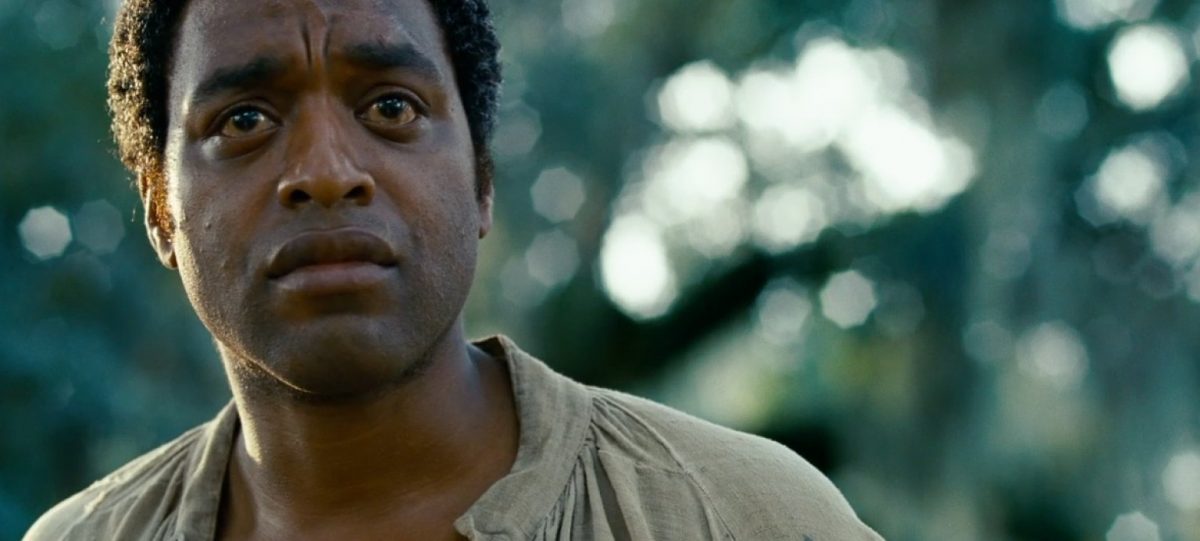 (5 / 5)
(5 / 5)
12 Years a Slave is the tale of Solomon Northup (Chiwetel Ejifor), a free black man and professional violinist in the mid 19th Century northeastern United States who, in 1841, was kidnapped and sold into slavery.
The third film of Steve McQueen, 12 Years a Slave feels, from the off, like a more mature approach to “the problem” of slavery than either of its two most immediate predecessors. We stay with Solomon over the course of those twelve years as he experiences kindness and degradation at the whims of his various masters.
As Solomon, Ejiofor shows an intense reserve and dignity as a man who refuses to be beaten down by circumstance, even as he is forced to slave in the cane fields and, in one grueling moment, turn the overseer’s whip on a fellow slave.
12 Years a Slave is shot with a matter-of-fact sort of poetry by cinematographer Sean Bobbitt: a shot of a sinuous caterpillar feasting on a cotton boll is not some overwrought existential statement but simply a fact of life; one of many that these men, good and bad alike, must face.
Into the latter category fall Benedict Cumberbatch’s Ford, a kindly Baptist preacher who views the ownership of his fellow man as a financial necessity, and Brad Pitt’s Canadian workman, Samuel Bass, who calmly articulates the hypocrisy he sees going on around him. On the other side of the scales, we have Paul Dano’s petty tyrant Tibeats, tormenting the slaves with song, and, most prominently, three-time McQueen collaborator Michael Fassbender as Edwin Epps, Solomon’s final and most wicked owner.
Fassbender is magnetically depraved in the role, self-loathing and explosively violent, citing Scripture to sanction his abuses even as he “carries on” with slave-girl Patsy (an astonishing Lupita Nyong’o). The torment he inflicts upon the helpless Patsy, so wretched and unending she begs Solomon to end her life, denies us the unambiguously happy ending of Solomon’s freedom.
It’s true there’s no real moral ambiguity to the text of 12 Years a Slave – Paul Giamatti’s auctioneer, for instance, is an uncomplex purveyor of human flesh – but slavery is hardly a topic to provoke great moral debate nowadays, and, compared at least to Lincoln and Django Unchained, this is still nuanced stuff. Garret Dilahunt, Michael K. Williams, Scoot McNairy, and Sarah Paulson round out the cast.
Simple and profound, 12 Years a Slave doesn’t patronize or seek to redress the injustices of slavery, which suggests, at last, a type of cinematic maturity that even Spielberg’s Amistad – perhaps the best film on slavery to date – never quite achieved.
The highlight of the London Film Festival so far and a surefire Oscar winner when awards season comes around.
